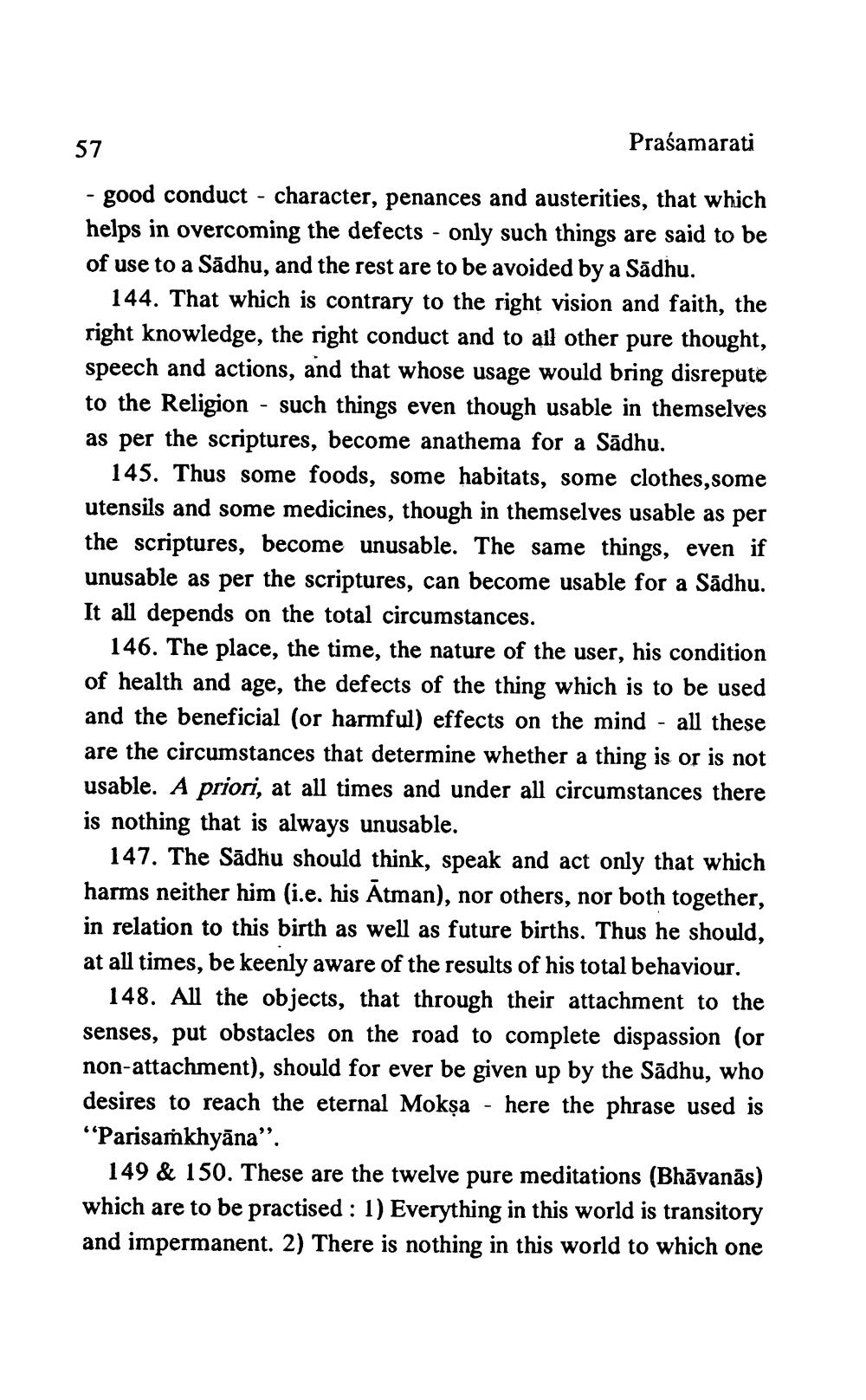________________
57
Praśamarati
- good conduct - character, penances and austerities, that which helps in overcoming the defects - only such things are said to be of use to a Sādhu, and the rest are to be avoided by a Sādhu.
144. That which is contrary to the right vision and faith, the right knowledge, the right conduct and to all other pure thought, speech and actions, and that whose usage would bring disrepute to the Religion - such things even though usable in themselves as per the scriptures, become anathema for a Sādhu.
145. Thus some foods, some habitats, some clothes,some utensils and some medicines, though in themselves usable as per the scriptures, become unusable. The same things, even if unusable as per the scriptures, can become usable for a Sãdhu. It all depends on the total circumstances.
146. The place, the time, the nature of the user, his condition of health and age, the defects of the thing which is to be used and the beneficial (or harmful) effects on the mind - all these are the circumstances that determine whether a thing is or is not usable. A priori, at all times and under all circumstances there is nothing that is always unusable.
147. The Sādhu should think, speak and act only that which harms neither him (i.e. his Atman), nor others, nor both together, in relation to this birth as well as future births. Thus he should, at all times, be keenly aware of the results of his total behaviour.
148. All the objects, that through their attachment to the senses, put obstacles on the road to complete dispassion (or non-attachment), should for ever be given up by the Sādhu, who desires to reach the eternal Moksa - here the phrase used is "Parisamkhyāna”.
149 & 150. These are the twelve pure meditations (Bhāvanās) which are to be practised : 1) Everything in this world is transitory and impermanent. 2) There is nothing in this world to which one




